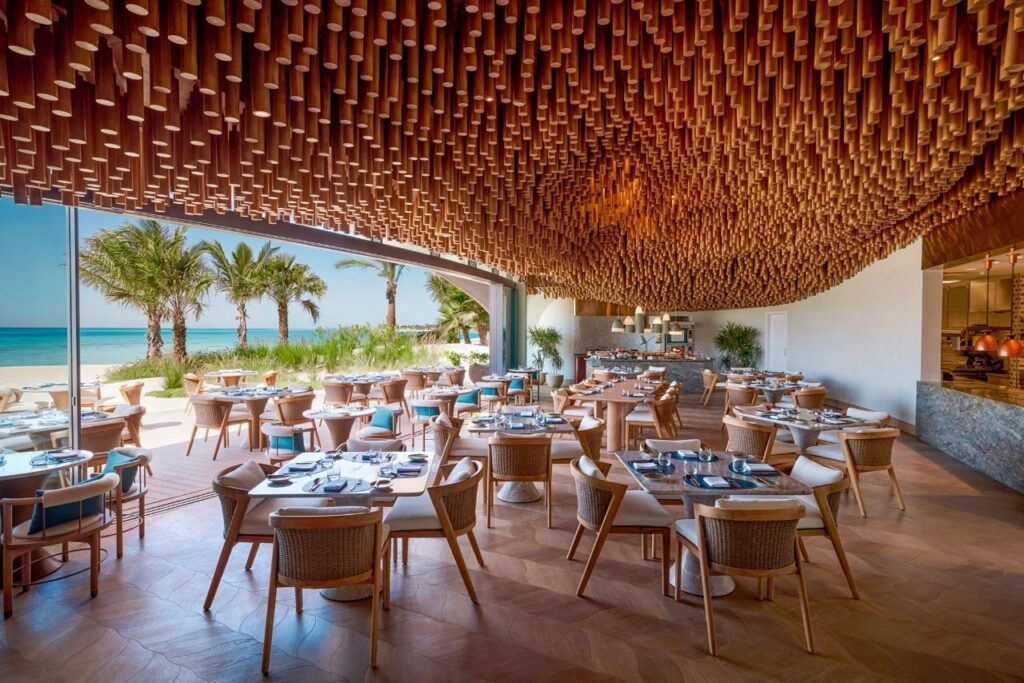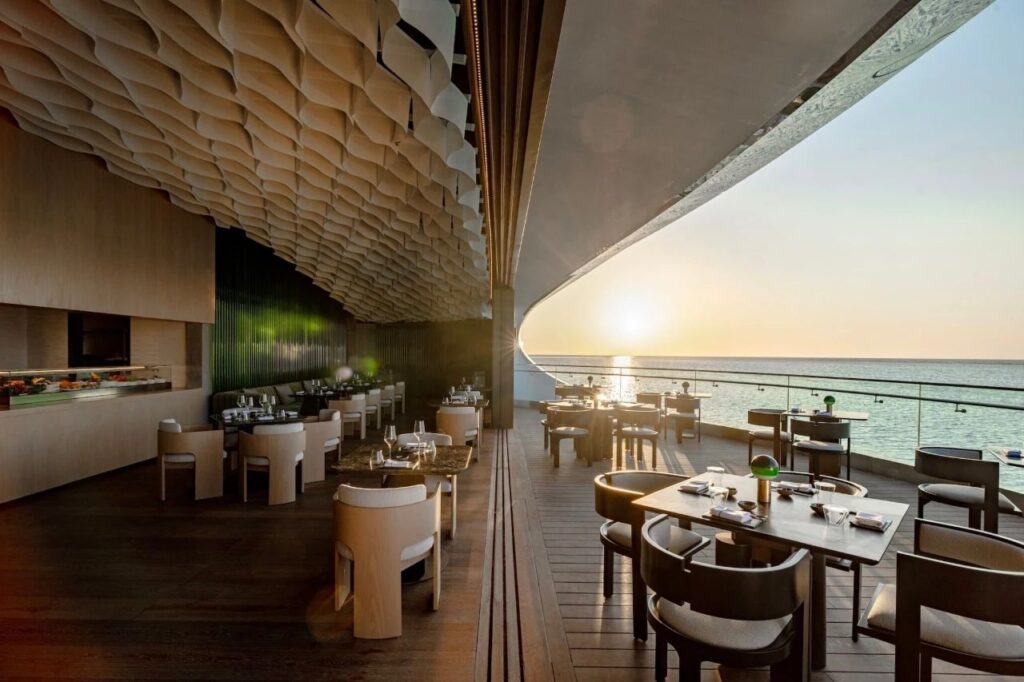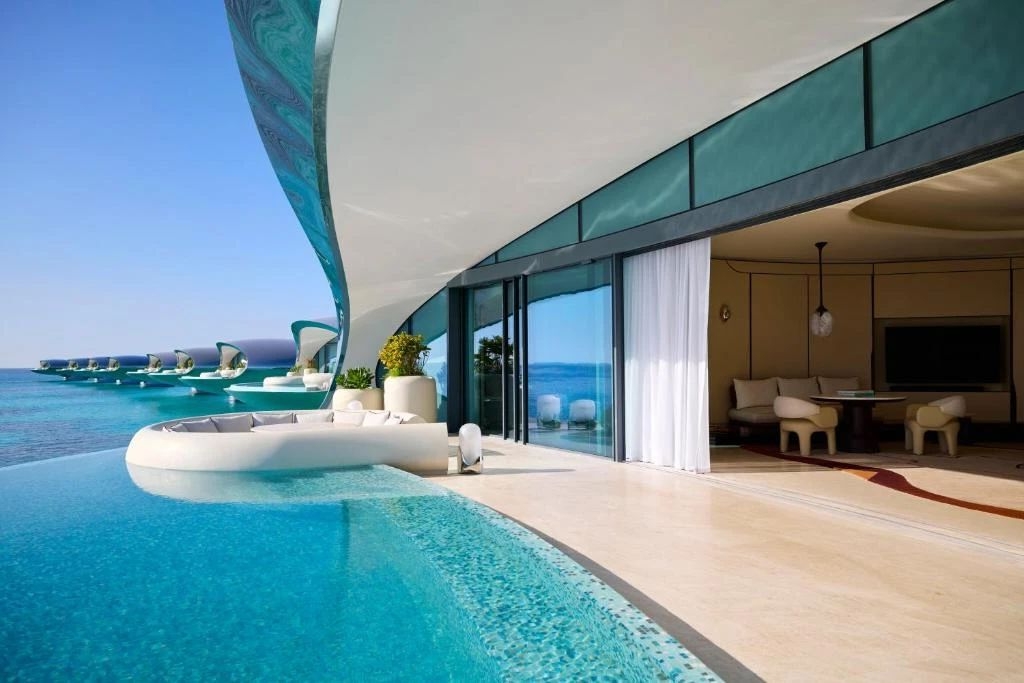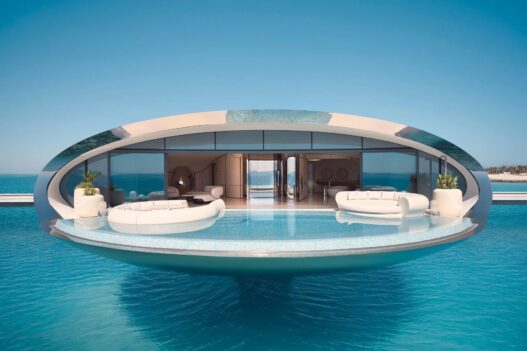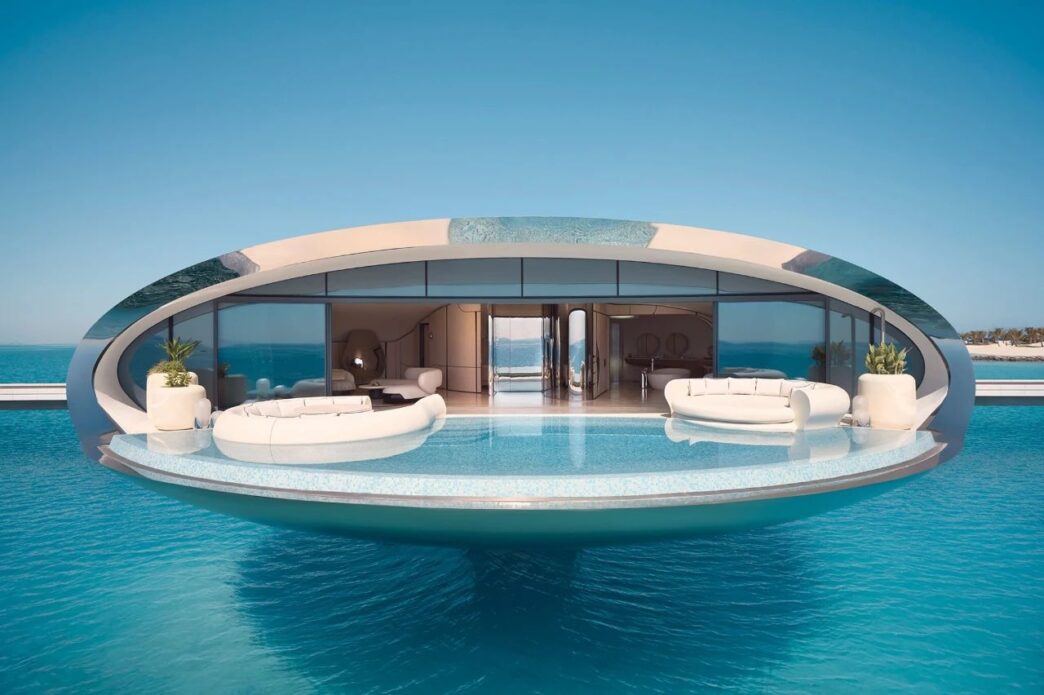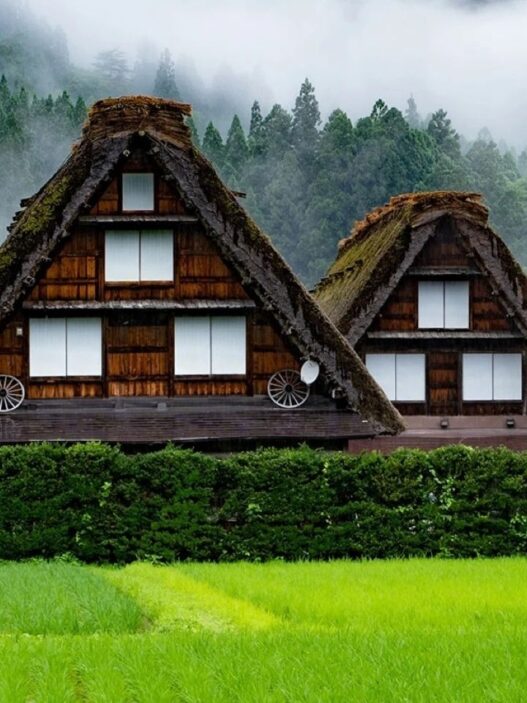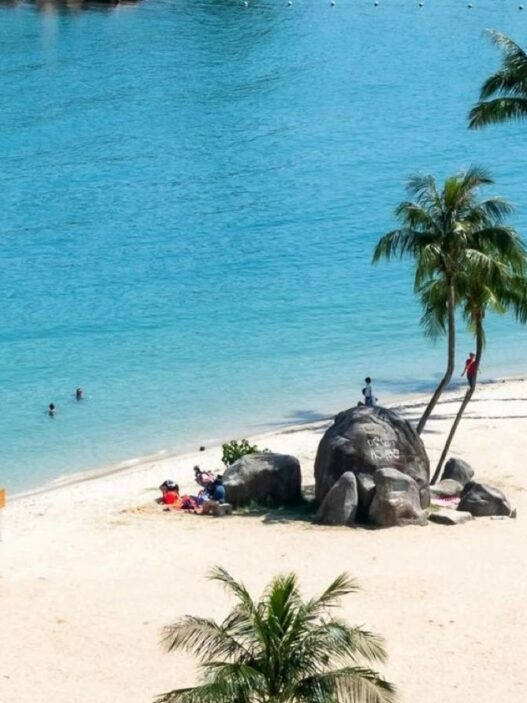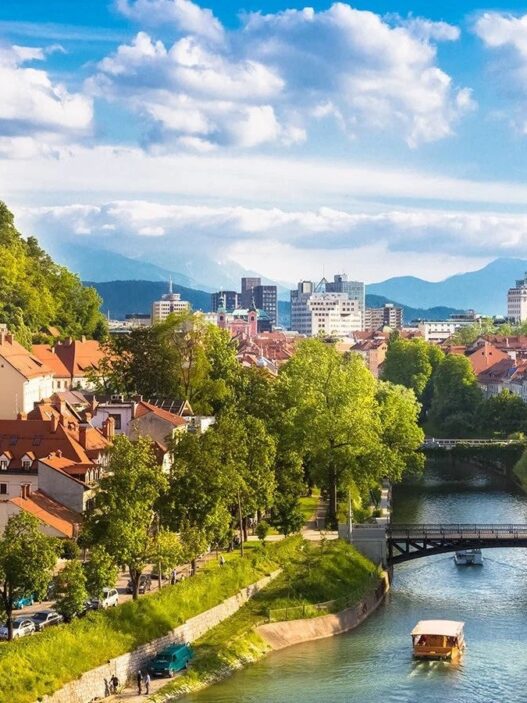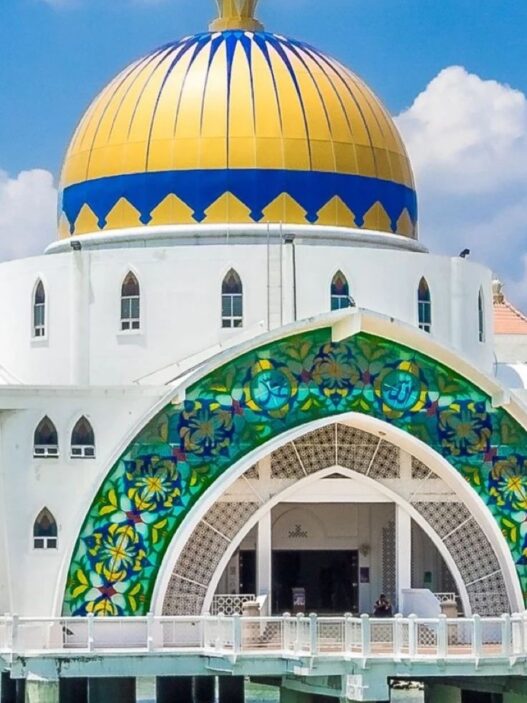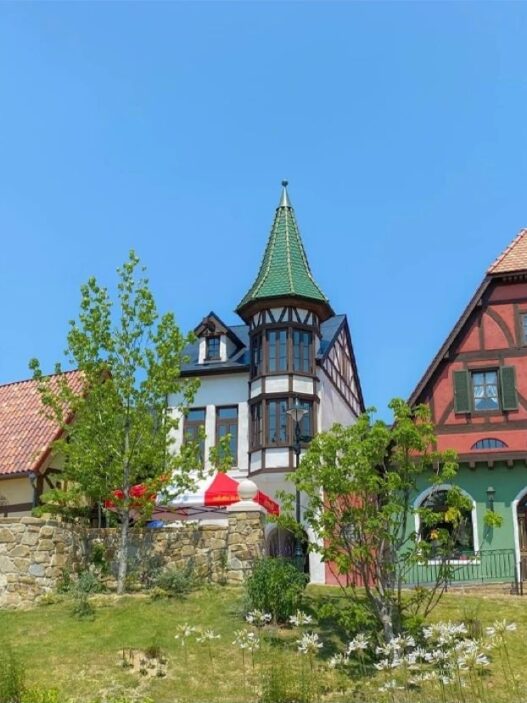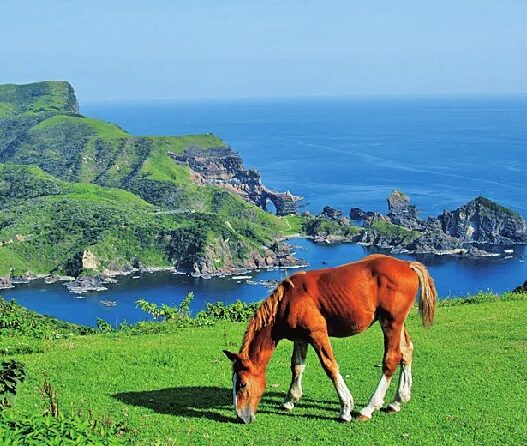Introduction to Shebara Hotel
Shebara Hotel opened its doors at the end of 2024. It is a unique luxury resort located on Sheybarah Island in the Red Sea, Saudi Arabia. The resort features 73 rooms and sits on a pristine, uninhabited island. It is accessible by a 45-minute boat ride or a 25-minute seaplane flight. Designed by Killa Design, Shebara offers an unmatched luxury experience surrounded by nature’s wonders.
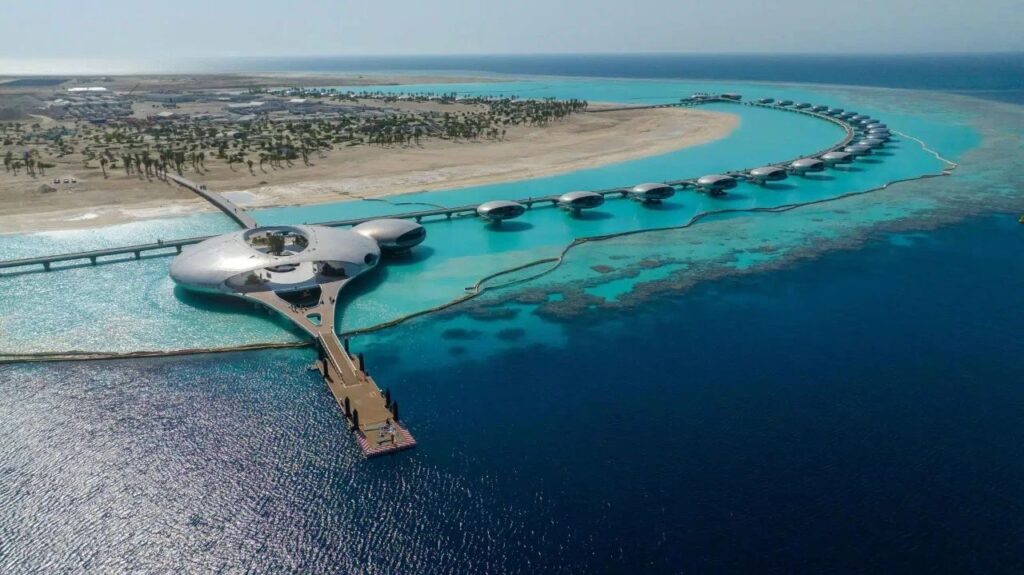
Location and Natural Surroundings
Sheybarah Island is a sanctuary of natural beauty, boasting lush mangroves, desert vegetation, white sand dunes, coral beaches, and seagrass meadows. The island is home to some of the world’s most beautiful and untouched coral reefs, making it a haven for diverse bird species, fish, and other marine life. The primary goal of this project is to enhance the island’s biodiversity while offering an unparalleled luxury experience, positioning Saudi Arabia as a top destination for marine eco-tourism.
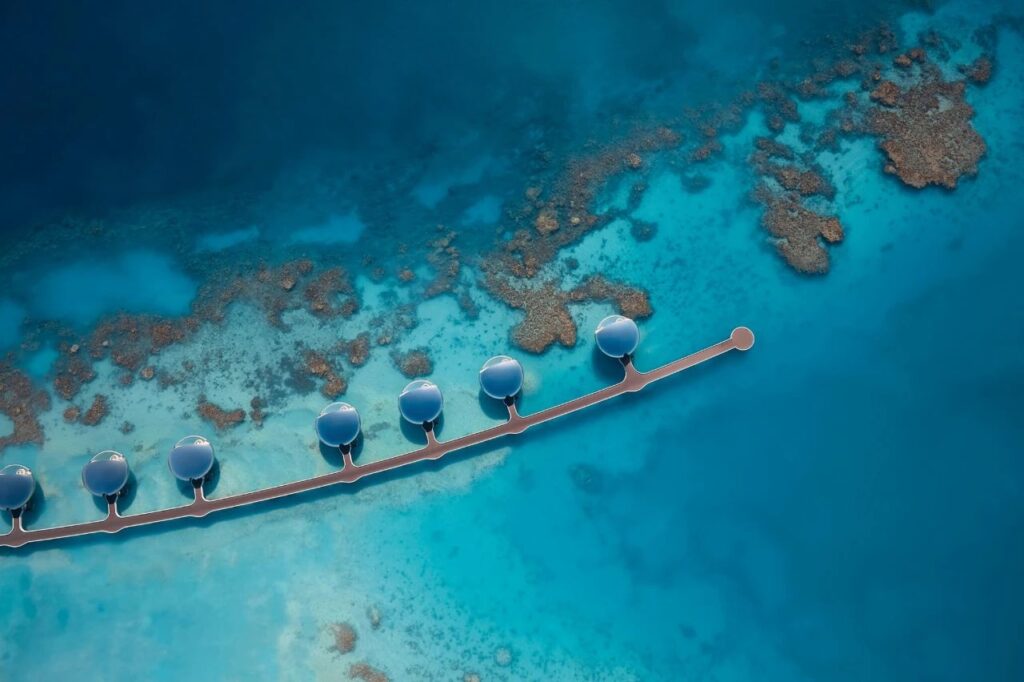
Overcoming Design Challenges
Due to the unique environmental conditions of the island, the design team faced significant challenges. How could they create a luxurious hotel while respecting the surrounding marine ecosystem? Their solution was to design a floating resort that provides a lavish experience without disrupting the environment. The innovative design helps preserve the island’s ecosystem, ensuring minimal ecological impact.
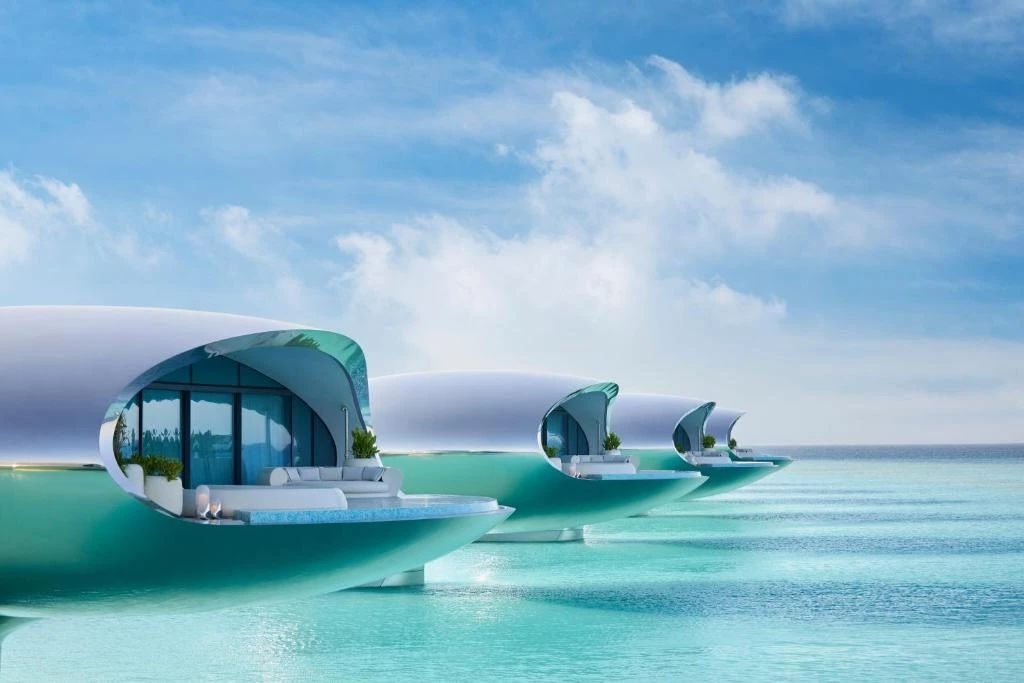
Floating Eco-Friendly Luxury
The Shebara Hotel’s rooms are suspended above the coral reefs, with supporting columns that take up minimal space—only a few square meters—thus ensuring that the surrounding marine life remains undisturbed. This “floating pod” concept defies gravity, offering guests a perfect vantage point to observe fish, birds, and even sea turtles. The resort, which opens in late 2024, offers rooms starting at $2,600 per night, with villas available for $3,500 and up.
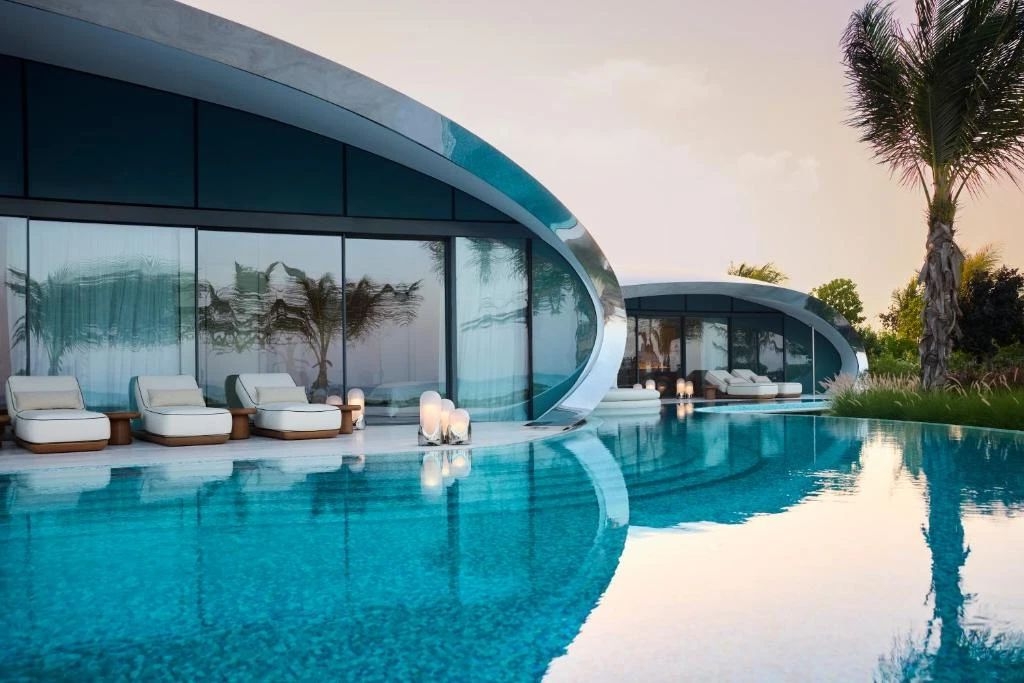
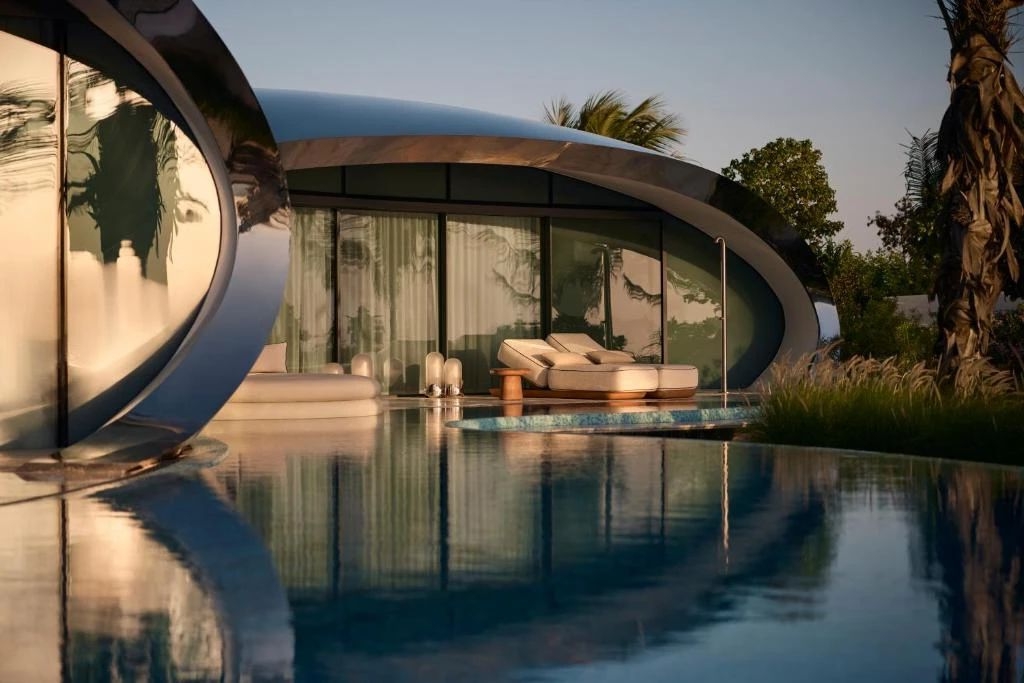
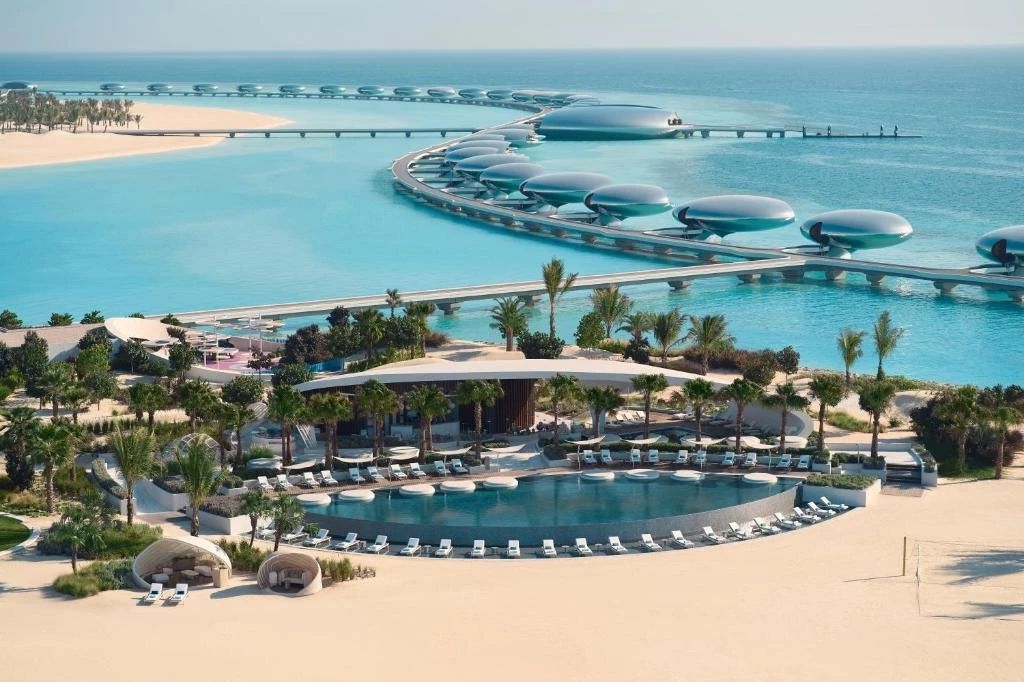
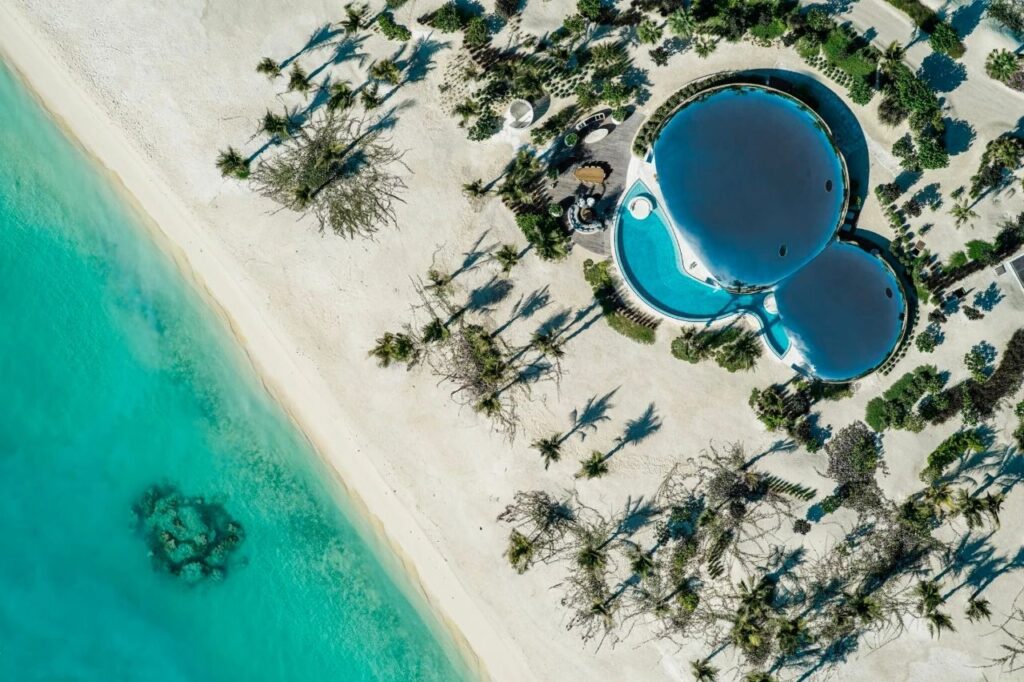
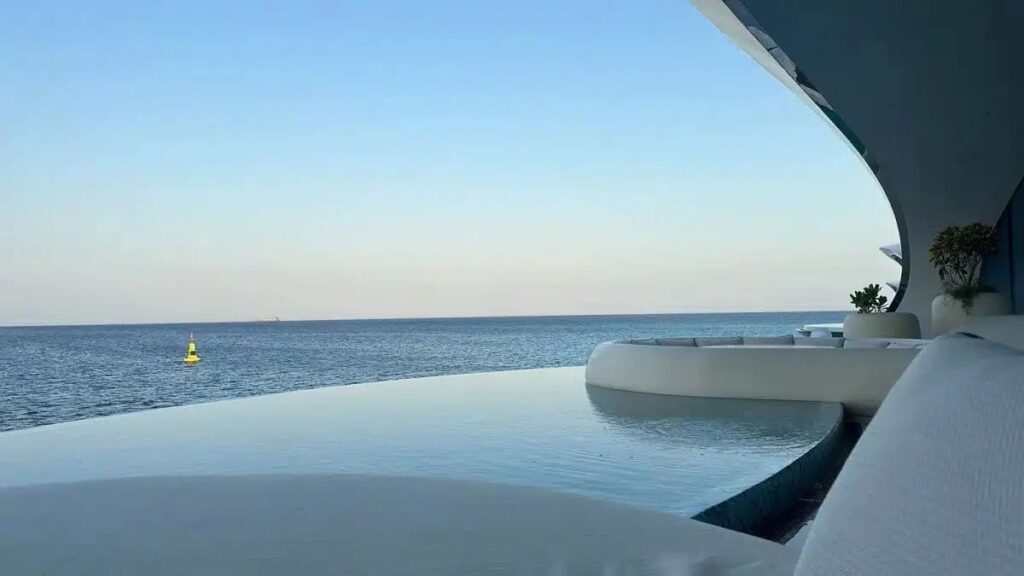
Sustainable Design and Energy Solutions
The hotel operates sustainably, relying entirely on a central solar farm with 11,000 photovoltaic panels for electricity. The seawater desalination plant, powered by solar energy, provides fresh water, and all waste is recycled on-site to minimize reliance on external resources. This self-sufficient approach is an integral part of the guest experience, where visitors can learn about the resort’s eco-friendly operations.
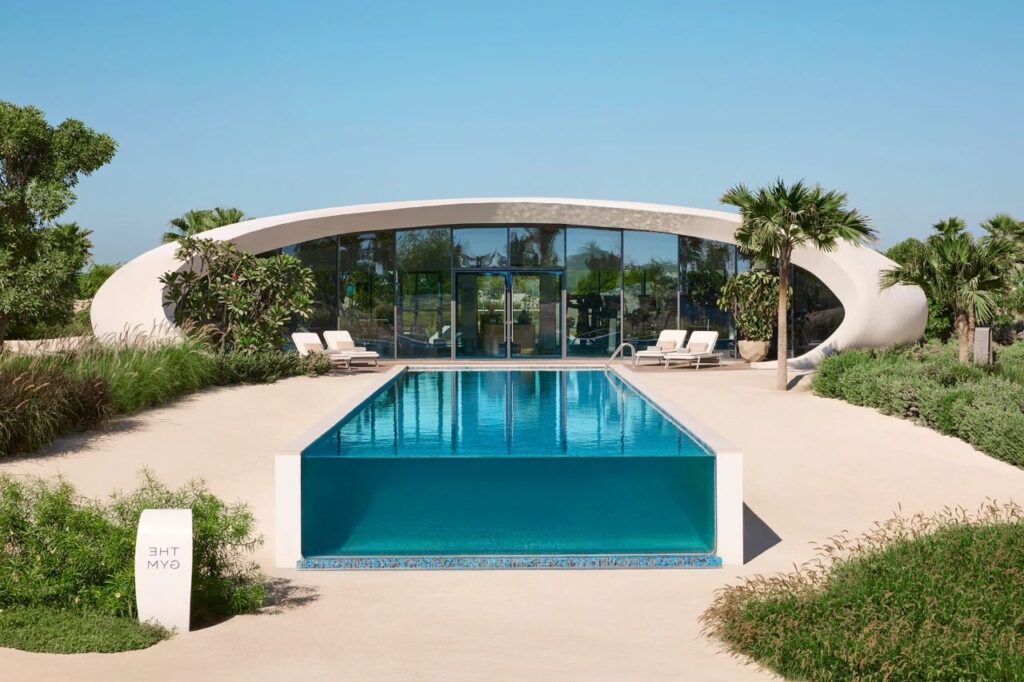
Aesthetic and Structural Innovation
The hotel’s exterior is designed to blend seamlessly with the surroundings. It features highly reflective stainless-steel panels with a mirror finish, allowing the hotel to mirror the colors and textures of the sea and sky. This design reduces the building’s visual impact and enhances its energy performance by nearly 100% reflection, minimizing solar heat gain and optimizing energy efficiency.
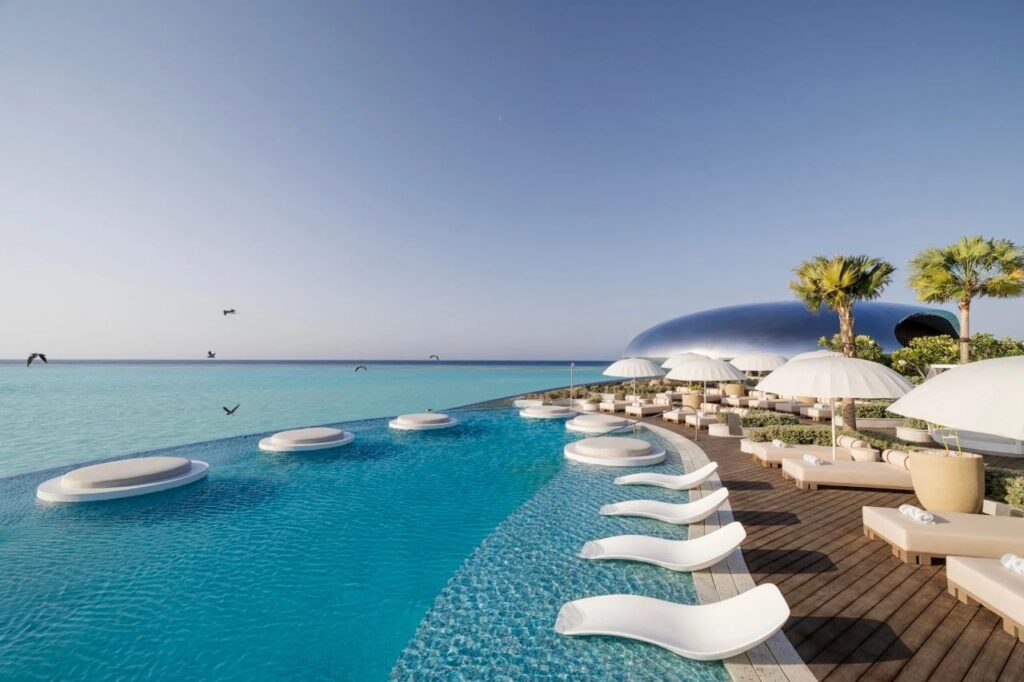
Luxurious Accommodations with Unmatched Views
Every room at Shebara Hotel is spacious and exudes the elegance of a luxury yacht’s interior. Guests are treated to panoramic ocean views, sliding doors that open to private decks, seating areas, and infinity pools. From these pools, the view extends directly over the ocean and the horizon, offering an unparalleled sense of tranquility and luxury.
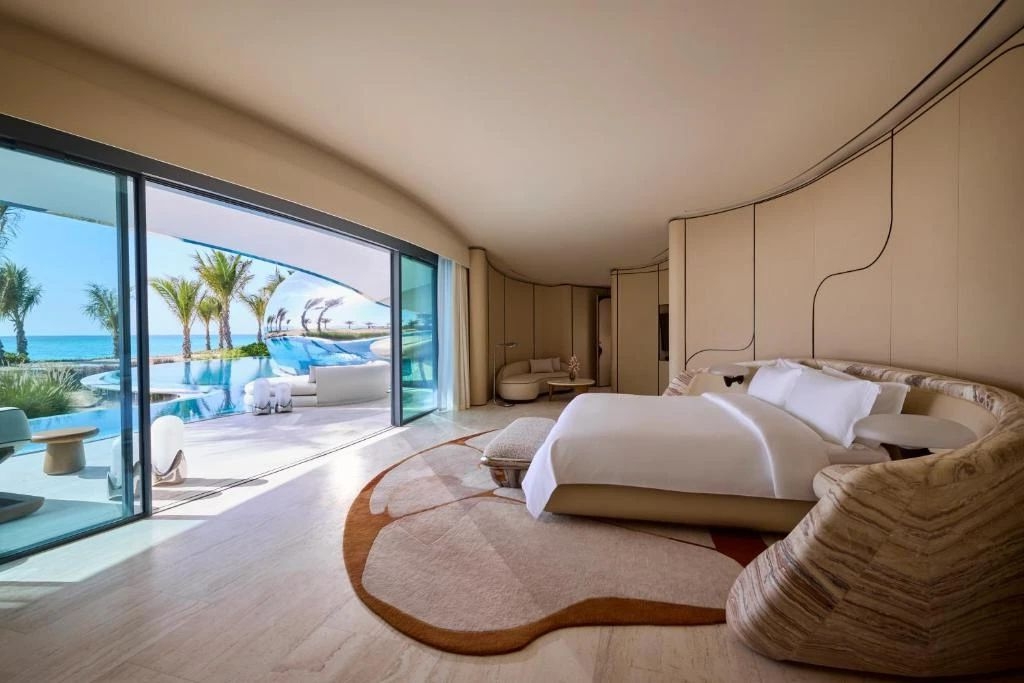
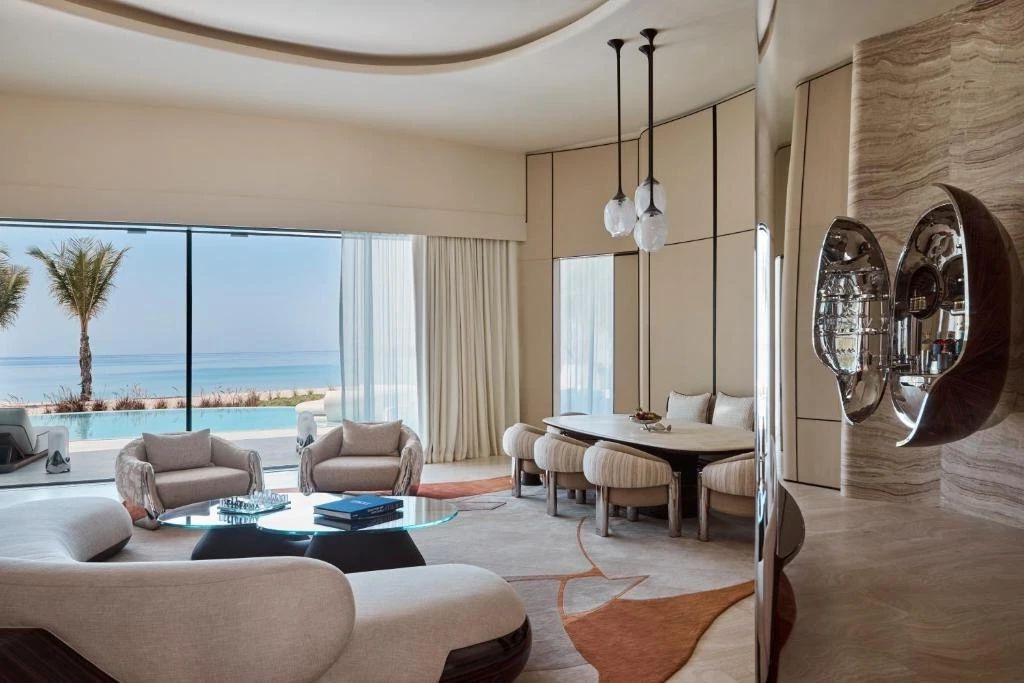
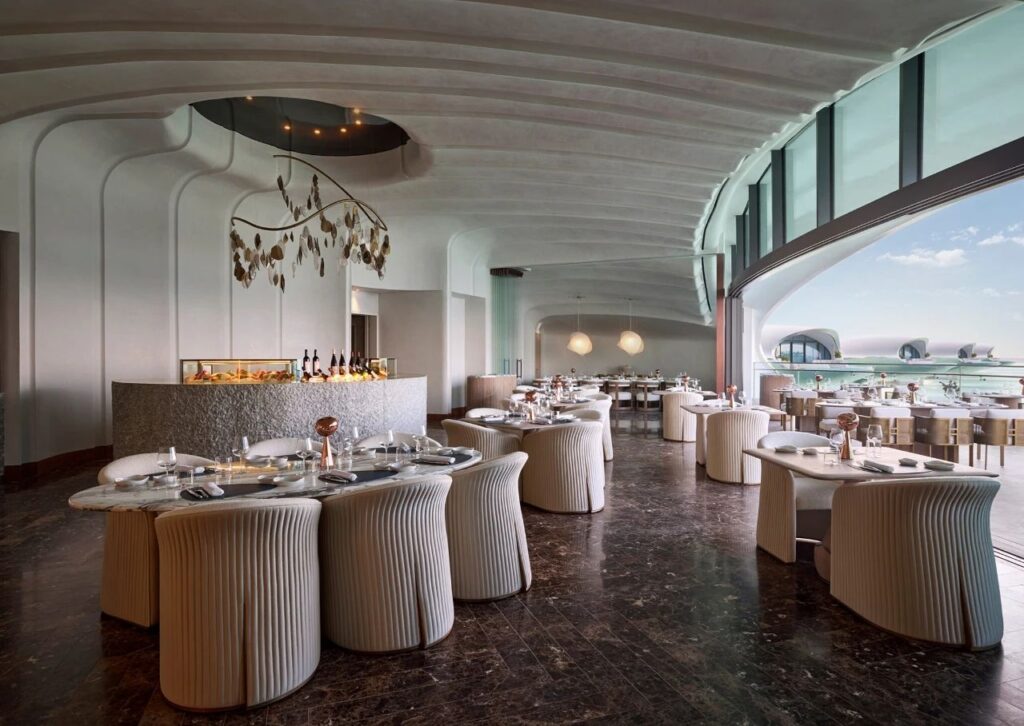
A New Benchmark for Eco-Tourism
Shebara Hotel promises to provide visitors with a luxurious escape that coexists harmoniously with nature. The resort highlights Saudi Arabia’s leadership in sustainable tourism and marine conservation, setting a new standard for eco-friendly oceanic tourism around the world.
